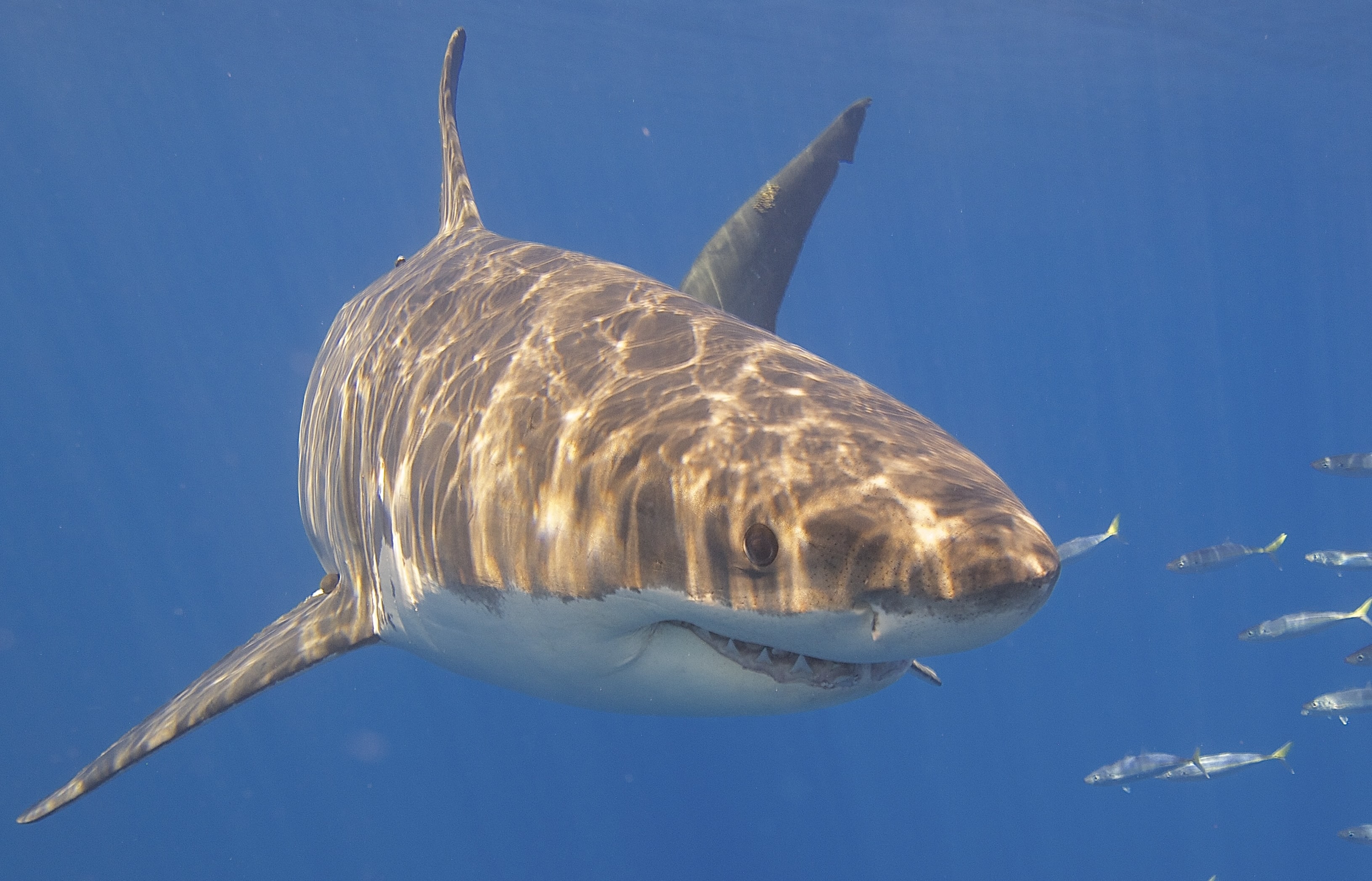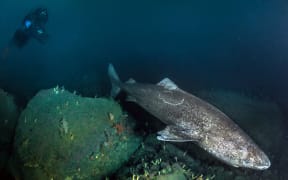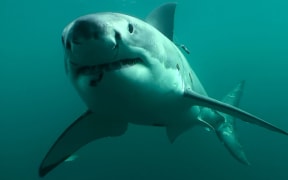The Department of Conservation (DoC) doesn't have to consider the risk to humans from great white shark cage-diving when granting licences for the activity, a court has been told.

Great white sharks (pictured) are known to gather near Stewart Island. Photo: CC BY 2.0 Elias Levy / Flickr
The commercial paua fishing industry is seeking a declaration from the High Court in Wellington that the Director-General of Conservation must consider the safety of other water users when granting licences near Stewart Island.
Bruce Scott, the paua fishers' lawyer, told the court the director-general solely focused on matters relating to the sharks in granting the licences, and not on others like the fishers who might be affected by that.
But DoC lawyer Jeremy Prebble said considering public safety was not a mandatory requirement for the organisation under the Wildlife Act.
He said the legislation's main focus was on protecting the sharks.
"This is not a case in which you can balance public safety against protection of the animal.
"If you [were to] consider human risk factors, you could also consider human benefit factors, for example the economic benefits of cage-diving, or impact on paua fishers who can't fish in a certain area because of cage-diving.
"Once you open the door to that, then both negative and positive factors could be considered and that will undermine the ability to protect the wildlife."
Mr Prebble said the underlying issue was a spatial conflict between the paua fishers and the shark cage-divers, and the ability to manage that was limited under the legislation.
He said maritime rules recommended radio contact between the shark cage operators and others nearby to ensure they did not come into contact.
"If that wasn't done they could be prosecuted under the Maritime Safety Act or health and safety [legislation].
"The Department of Conservation can't regulate between multiple parties in the marine areas and [doing so] would potentially interfere with the mandate of Maritime New Zealand."
Mr Prebble urged Justice Clark to refuse the declarations sought by the paua fishers.
He said the court should issue a declaration that the Director-General of Conservation had the power to authorise the cage-diving operation.
The cage dive operators' lawyer, Sue Grey, said it was the paua divers' responsibility not to dive where the sharks were and not without adequate protection.
"Also not to shunt the responsibility onto someone else of the risks they clearly do face."
Paua fishers make case
In reply, Mr Scott said DoC's submissions showed the director-general was looking to misuse his powers to enable adventure tourism.
"Also, the suggestion that it's a competition for space between the divers and the cage operators is, to be honest, a little insulting to the divers who are genuinely concerned that someone could get seriously hurt if it's allowed to continue."
Earlier, Mr Scott told the court there were contradictions in the department's position.
It claimed wildlife legislation was primarily about protecting animal species, but despite that it also authorised the pursuit and disturbance of those species as part of a tourism operation, Mr Scott said.
It could not have it both ways, he said.
"Either the legislation is solely about protecting wildlife and you can't use it to allow interfering with wildlife for the purpose of public viewing, or he [Director-General Lou Sanson] can, but in doing so must be able to take into account as part of the balancing exercise the public benefit and the risks to other members of the public if he was to authorise that activity."
There was an important difference between the director-general's position and that of the shark cage operators, Mr Scott said.
"The director-general accepts the need for authorisation of the operators, but the operators argue they don't need an authorisation and as long as they don't kill or molest [the sharks] they can continue to disturb and pursue them."
Mr Scott said his clients also wanted where the licences were granted to be taken into account.
"Is it just too close to residents of Stewart Island and, if it is going to be authorised, should it be forced to go down much further away from Stewart Island?"
Justice Clark questioned whether some problems arose in attempting to have a rather old piece of legislation accommodate a contemporary form of tourism venture.
Mr Scott agreed, saying when it was written the legislation was solely focused on looking after the animals, not a public benefit such as tourism.
The judge reserved her decision.




